Ride for a greener tomorrow: Cycling event promotes water sustainability
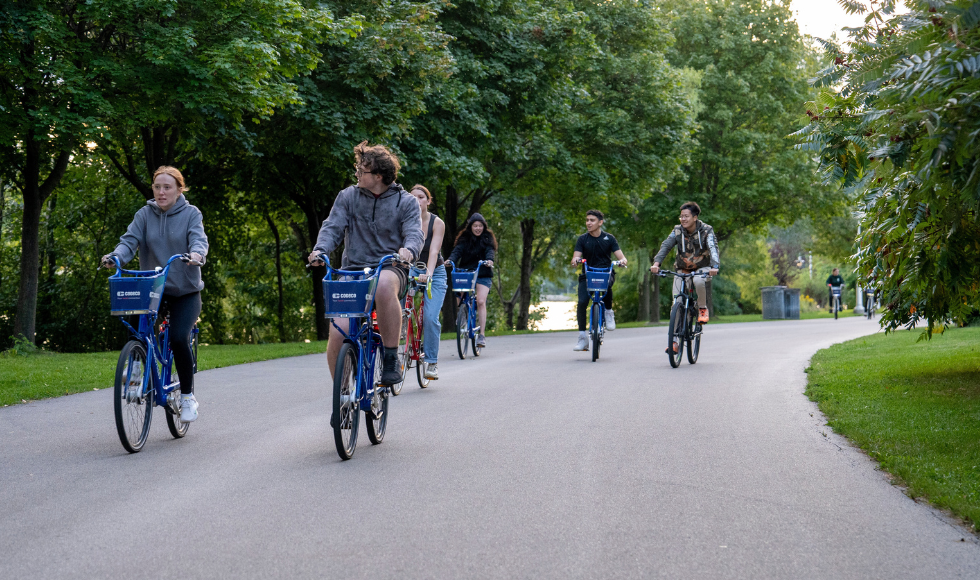
More than 40 students, staff, faculty and community members took part in a cycling event intended to promote sustainability practices around water.
Hamilton’s shoreline served as the backdrop for a recent cycling event where community members gathered to discuss the importance of water research and sustainability practices.
The Water Cycles ‘Welcome Back’ ride — the first McMaster cycling event of the fall — was organized by the Academic Sustainability Programs Office in collaboration with Hamilton Bike Share and Water Cycles Expeditions.
The event saw more than 40 students, staff, faculty and community members gather to hear from McMaster water research experts.
Starting from campus, participants pedaled along the scenic Waterfront Trail, eventually arriving at Bayfront Park. Speakers then discussed the importance of water and ongoing research, sharing their perspectives on sustainability practices.
“It was really nice to bike along the water and hear from the amazing speakers,” said Janice Leung, a fourth-year kinesiology student in the Faculty of Science.
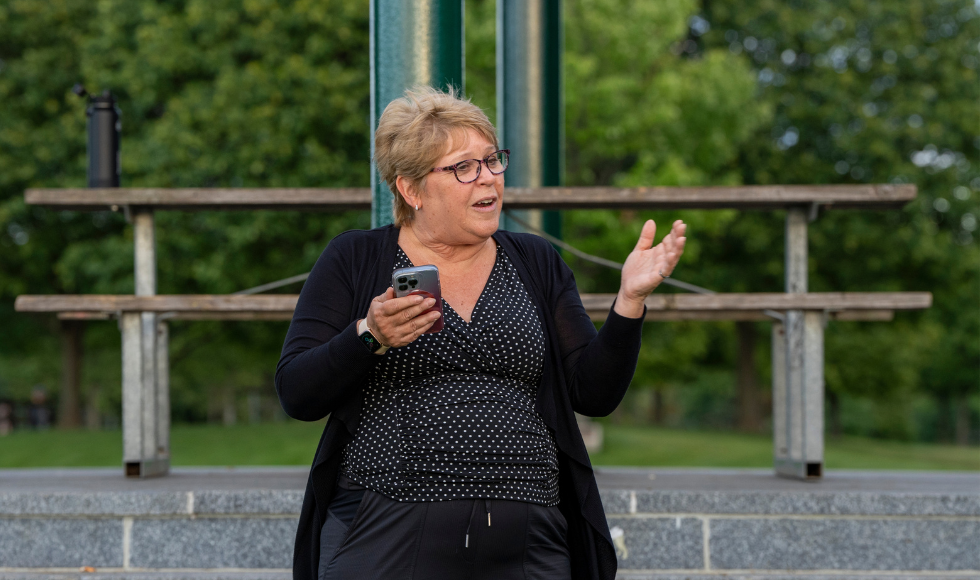
In her opening remarks, Heather Sheardown, dean of the Faculty of Engineering said, “we have all felt, seen, or heard of the impact of climate change this summer, possibly more than any other.”
“Sustaining our resources requires an unwavering commitment to sustainable practices in our everyday lives, like cycling,” said Sheardown.
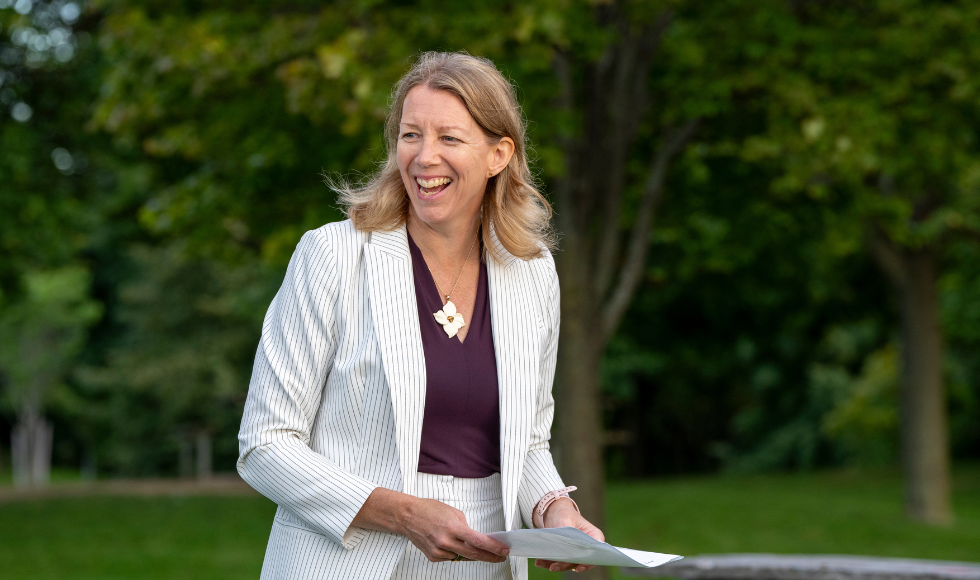
Maureen McDonald, dean of the Faculty of Science, underscored McMaster’s commitment to environmental sustainability.
“We have outstanding professors, postdocs and students doing absolutely essential sustainability and climate change research throughout our Faculty of Science and across the university.”
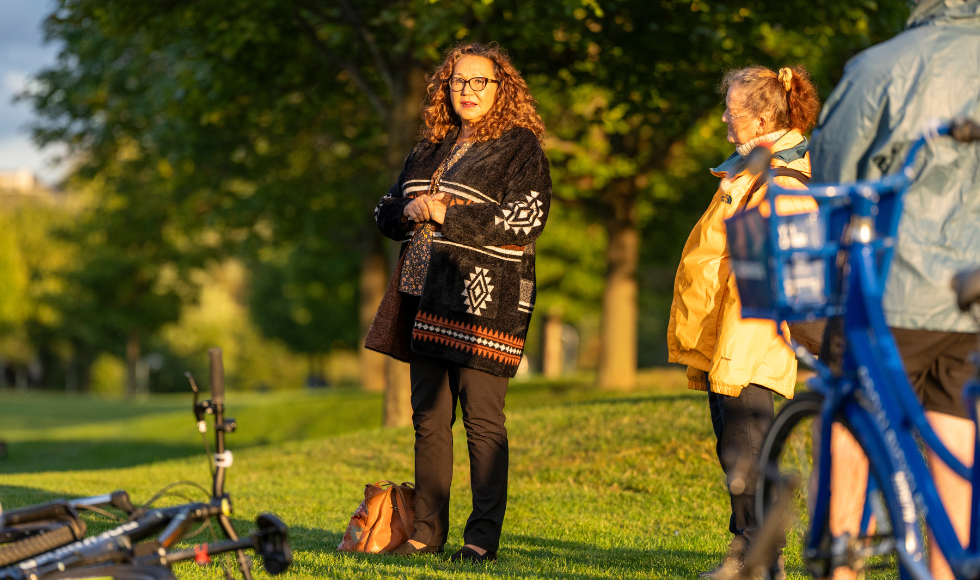
Dawn Martin-Hill, a cultural anthropologist in McMaster’s Indigenous Studies Department, leads the Ohneganos Ohnegahdę:gyo program, focused on Indigenous water research.
She explained a water teaching, sharing, “The Haudenosaunee creation story starts with Skywoman falling to Earth, and her first words are ‘ohneganos’ as the earth was covered in water. She landed on a turtle’s back, and this is why we refer to the continent as Turtle Island.
The goal is to work together and do no harm.”
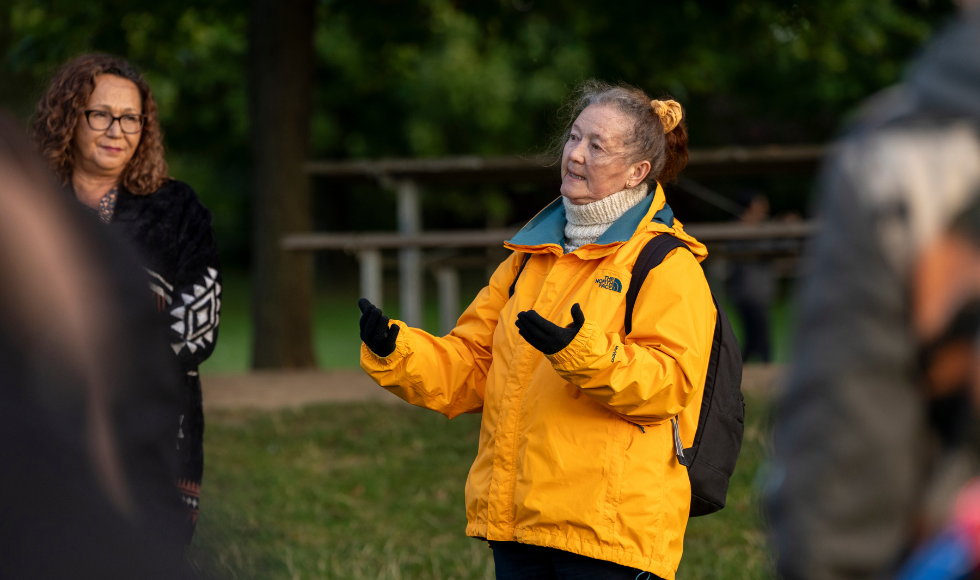
Nancy Doubleday joined McMaster in 2009 as the inaugural Hope Chair in Peace and Health. Currently, she directs the Joint McMaster – United Nations University Institute for Water, Environment and Health Water Without Borders Graduate Diploma Program.
As part of the Department of Philosophy, she specializes in international law concerning Indigenous peoples, the environment and governance in social-cultural-ecological systems. She trained in biology, targeting paleo-ecological climate change and Arctic contaminants, and is a lawyer.
“Beyond being a stakeholder, we need to come up with some kind of co-governance that actually works for the local community to get us over the hurdle of maintaining sustainable water resources.”
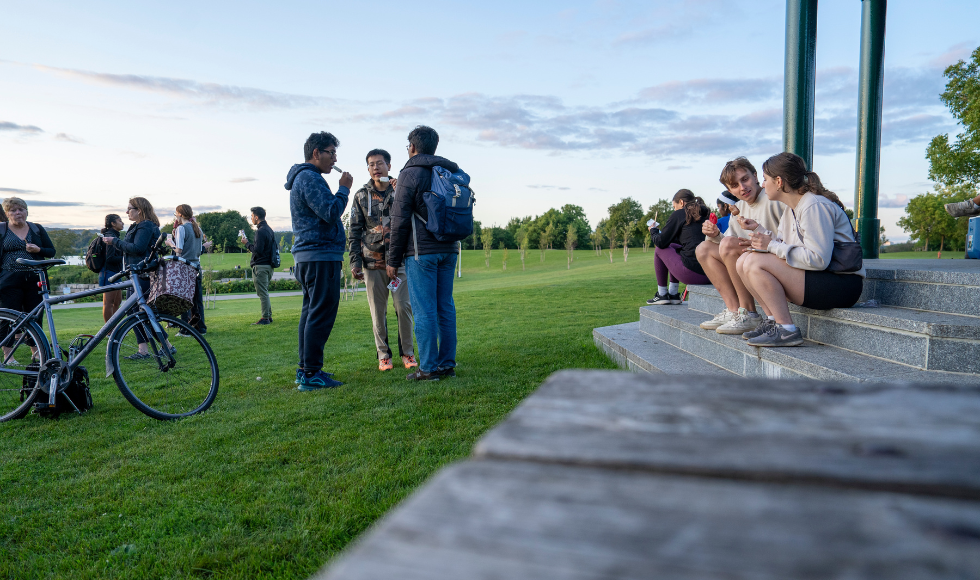
Other speakers included McMaster researchers Sean Carey, Gregory Hooks, Peter Topalovic and Sarah Dickson-Anderson who shared their research, teaching and involvement in water protection and sustainable mobility.
After the speeches, everybody enjoyed refreshing paletas (a frozen treat made with fresh fruit) while watching the sun set over Lake Ontario.
For information on future bike rides hosted by the Academic Sustainability Programs Office, follow @MacSustain on Instagram


